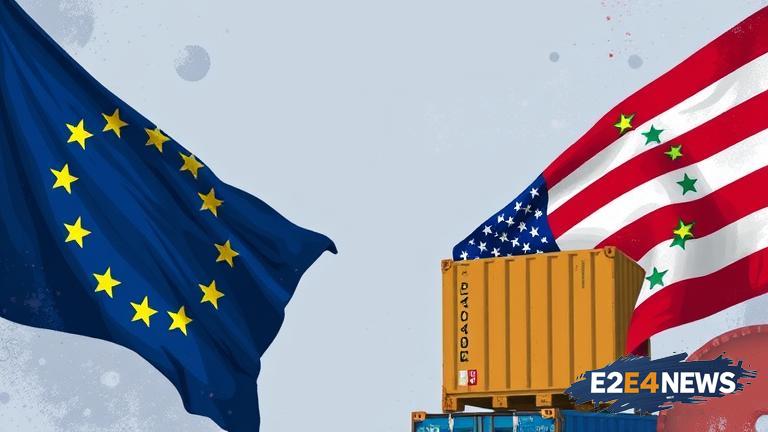The United States has announced that it will begin imposing tariffs on the European Union and Mexico on August 1, in a move that is expected to escalate trade tensions between the nations. The tariffs, which were first announced in May, will apply to a range of goods including steel, aluminum, and agricultural products. The EU has vowed to retaliate with its own tariffs on US goods, sparking concerns of a global trade war. The move is seen as a major blow to the global economy, which is already facing significant challenges. The US has cited national security concerns as the reason for the tariffs, but the EU has dismissed this as a pretext for protectionism. The tariffs are expected to have a significant impact on businesses and consumers in all three countries, with many warning of higher prices and reduced economic growth. The EU has already begun preparing its own tariffs on US goods, which are expected to include iconic American products such as Harley-Davidson motorcycles and bourbon whiskey. Mexico has also vowed to retaliate, with its economy minister warning of a ‘proportional response’ to the US tariffs. The move has been widely criticized by business leaders and economists, who warn that it will lead to a decline in global trade and economic growth. The US Chamber of Commerce has warned that the tariffs will ‘harm American businesses and workers’, while the EU’s trade commissioner has described the move as ‘unjustified and unacceptable’. The tariffs are also expected to have a significant impact on the global steel and aluminum industries, with many producers warning of reduced production and job losses. The US has already imposed tariffs on China, which has responded with its own tariffs on US goods. The move is seen as part of a broader trade war between the US and its major trading partners, with many warning of a significant decline in global trade and economic growth. The EU and Mexico have called for the US to reconsider its decision, but so far there is no indication that the US will back down. The tariffs are expected to take effect on August 1, with many businesses and consumers bracing themselves for the impact. The move is seen as a major test of the global trading system, with many warning that it will lead to a decline in international cooperation and a rise in protectionism.
